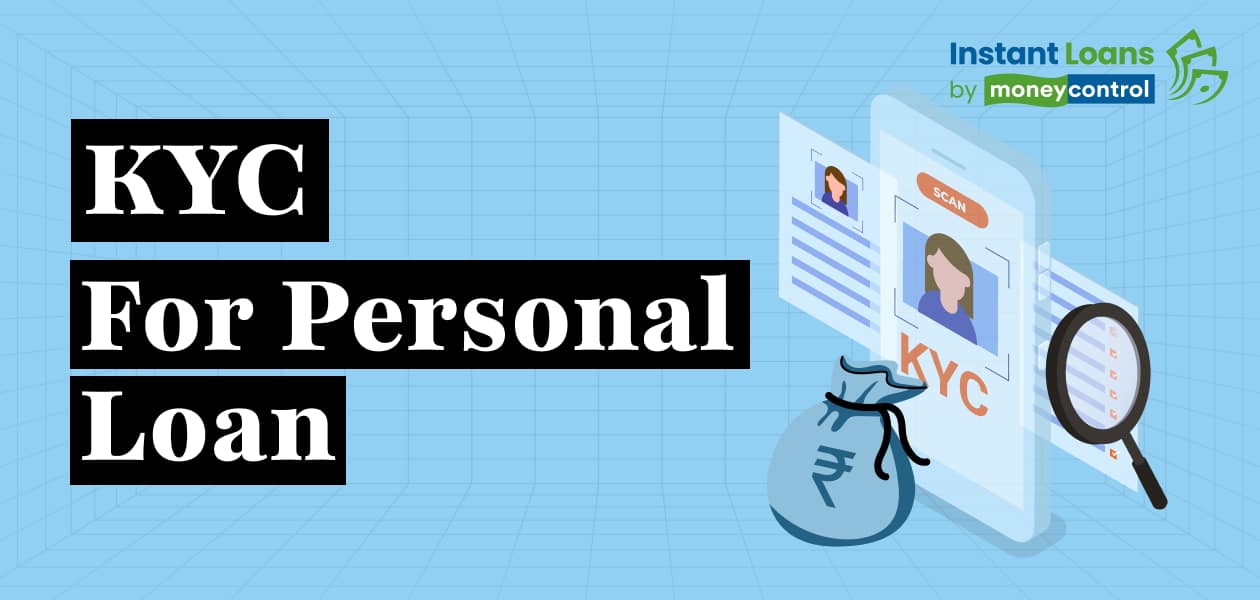Getting a personal loan these days is easier than ever. You can apply online, get instant approvals, and even have the money in your account within hours. But before any of that happens, there is one key step: KYC (Know Your Customer).
From Aadhaar and PAN to salary slips and bank statements, different lenders have different KYC requirements. Some even allow video KYC, so you don’t have to visit a branch. The better your documents and credit history, the smoother your loan approval process.

What is a personal loan KYC? KYC, or Know Your Customer, is a process used by banks, financial institutions, and other businesses to verify the identity of their customers. It makes sure that the person applying for a loan, opening a bank account, or using financial services is genuine and not involved in fraud, money laundering, or other illegal activities. Why is KYC important? Get Instant Loan Up To Rs.
50L Steps Involved in Personal Loan KYC Verification Documents required for KYC verification Verification of Submitted Documents Once you submit the documents, the lender checks their authenticity. There are three common ways to verify your KYC for a personal loan: 1. Online (e-KYC or Aadhaar-based KYC Loans) : If you opt for e-KYC, verification happens instantly using your Aadhaar number.
The lender sends an OTP to your registered mobile number linked to Aadhaar. Once you enter the OTP, your identity is verified, and the process moves forward. 2.
Video KYC: Some lenders offer video KYC, where you need to verify your identity over a video call. A bank representative will ask you to show your original KYC documents and take a live picture of you holding the document. This method is secure, contactless, and quicker than physical verification.
3. Physical KYC Verification: If e-KYC or video KYC is not possible, you may need to visit a bank branch with your documents. Some lenders send a representative to your home or office to verify your identity and collect documents.
Approval or Rejection Based on KYC Verification After the verification is complete, the lender takes one of the following actions: Approval: If all documents are valid, the lender proceeds with your loan application. Once other eligibility criteria (like credit score and income) are met, your loan gets approved, and the amount is disbursed. Rejection: If any document is missing, incorrect, or fake, the lender may reject your loan application.
Some common reasons for KYC rejection include– Mismatched details between documents (eg: different addresses on Aadhaar and bank statements), expired ID proofs, incomplete KYC submission. Common Myths About KYC Loans Myth 1: KYC is only needed for first-time borrowers – Even if you have taken a loan before, KYC verification is required for every new loan application. Myth 2: KYC delays loan approvals – If your documents are in order, digital KYC is completed within minutes.
Myth 3: You can skip KYC for online loans – Every legal lender, whether a bank or a digital platform, requires KYC verification. In conclusion, personal loan KYC verification is an important step in getting a personal loan. It helps prevent fraud, ensures security, and makes the loan approval process smoother.
If you are looking for a quick and easy personal loan, Moneycontrol's online lending platform offers loans up to Rs 50 lakhs from eight lenders, with interest rates starting at 10.5% per annum. The entire process is 100% digital, so you can apply and complete KYC online without any hassle.
















